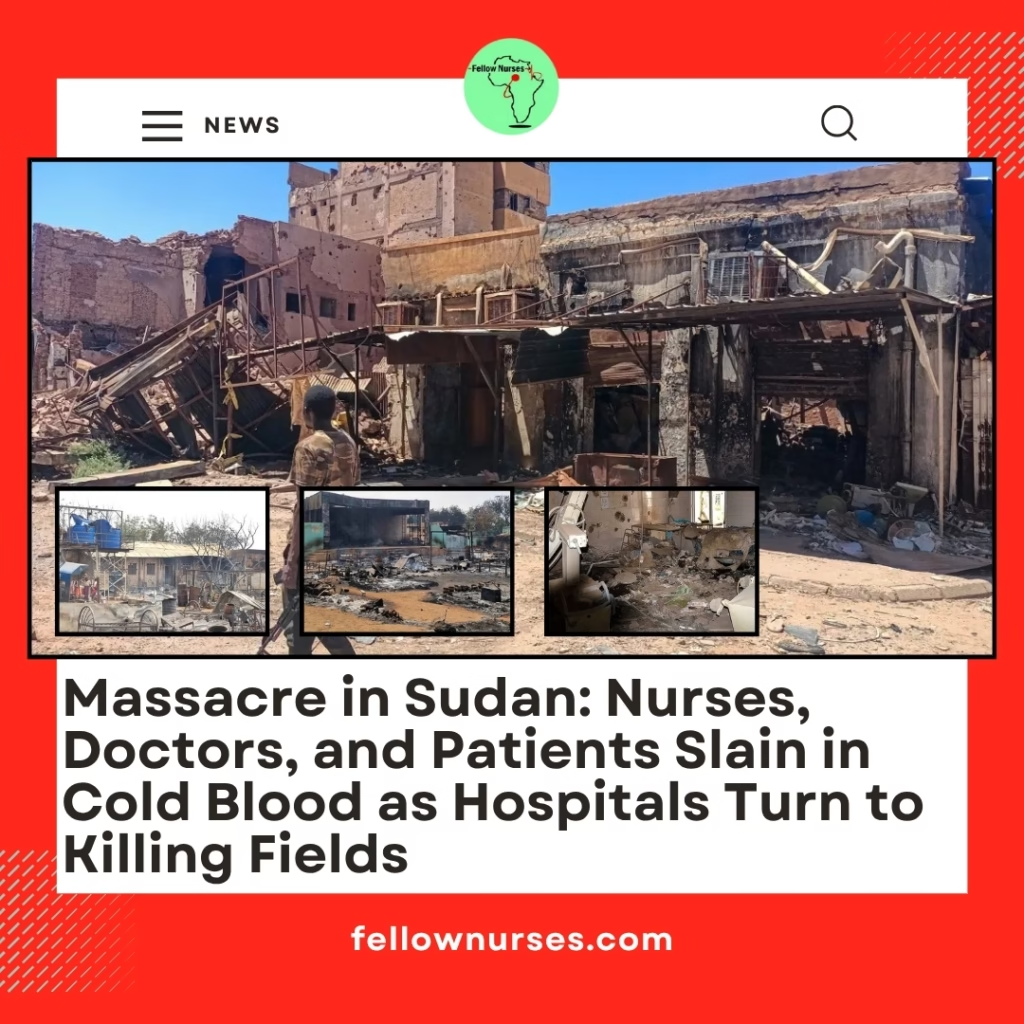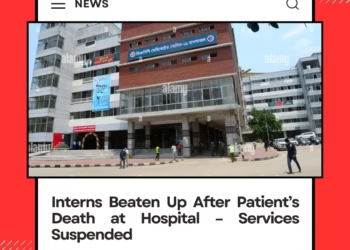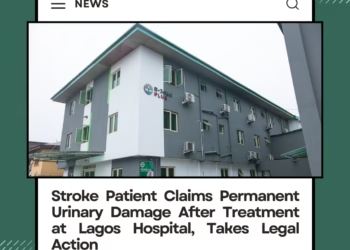Fellow Nurses Africa | Lagos, Nigeria | 01 November, 2025

El Fasher, Sudan
What should have been a place of healing has become a site of horror. In one of the deadliest atrocities of Sudan’s ongoing conflict, over 460 patients, relatives, nurses, and doctors were massacred inside the Saudi Maternity Hospital in El Fasher, North Darfur.
Witnesses say armed men stormed the facility, executing civilians, including women in labor, newborns, nurses, and visitors while others were trapped in wards set ablaze during the assault.
The World Health Organization (WHO) has condemned the killings as “a blatant violation of international humanitarian law and an assault on humanity itself.”
Six health workers were reportedly abducted, including four doctors, a nurse, and a pharmacist.
The Saudi Maternity Hospital was one of the last functioning facilities in El Fasher, providing emergency maternal and newborn services to thousands displaced by months of fighting. Now, it lies in ruins.
Elsewhere, attacks on hospitals and medical personnel have become a grim pattern. Earlier this year, the Rapid Support Forces (RSF) killed several health workers, including a hospital medical director, a doctor, and a nurse in El Nuhud, North Kordofan. In February, an artillery strike on Al-Nour Hospital in Omdurman left six dead and 38 wounded.
Since 2023, humanitarian monitors estimate over 150 healthcare workers have been killed and dozens kidnapped in Sudan’s war.
Health workers in conflict zones are protected under the Geneva Conventions, yet Sudan’s war has erased these boundaries. The deliberate targeting of hospitals represents not only a war crime but also an attack on the very principles of human dignity and care.
The world cannot remain silent.
International organizations like the United Nations, African Union, and World Medical Association must act decisively to investigate and hold perpetrators accountable.
Humanitarian corridors must be reopened to allow medical aid, fuel, and supplies to reach trapped civilians.
And most importantly, protection for healthcare workers must be non-negotiable.
From Khartoum to El Fasher, Sudanese nurses, doctors, and volunteers continue to risk their lives every day, treating the wounded in makeshift clinics, often without electricity, oxygen, or basic safety.
One nurse’s final message, sent before the El Fasher massacre, reads:
“We have nowhere left to hide. If we die, tell the world we were only trying to save lives.”
Let the world hear them.
Fellow Nurses Africa is the independent voice of African Nurses. We educate, inform and support the nurse profession.










